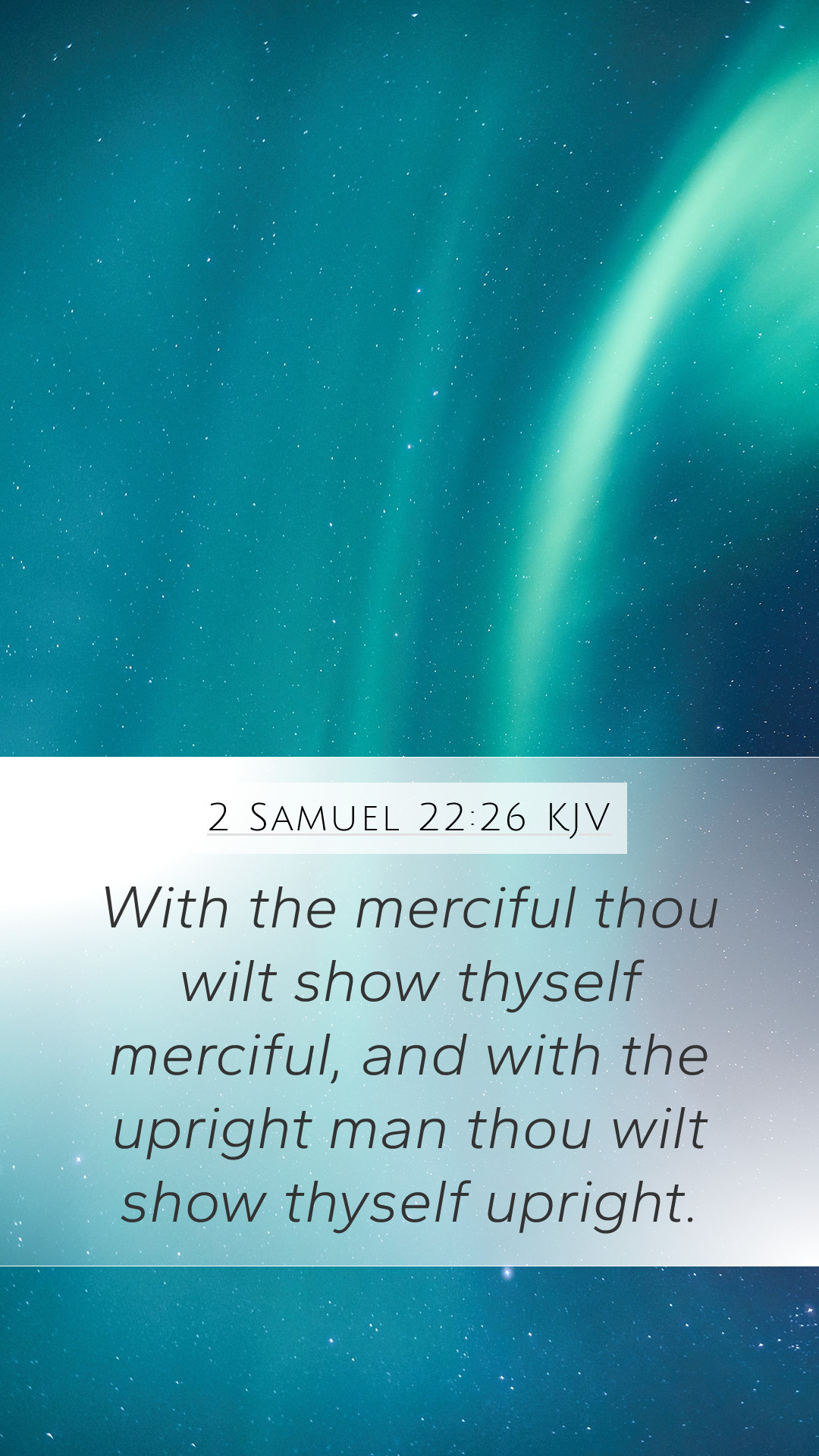Understanding 2 Samuel 22:26: A Comprehensive Bible Verse Commentary
Verse: “With the merciful thou wilt show thyself merciful, and with the upright man thou wilt show thyself upright.” (2 Samuel 22:26)
Introduction to 2 Samuel 22:26
This verse is part of David’s song of praise after his deliverance from his enemies, including King Saul. The overarching theme emphasizes God’s just nature and how He responds to the behavior of individuals. It speaks to the reciprocal relationship between humanity and the divine, encapsulated in the concepts of mercy and uprightness.
Bible Verse Meanings
This portion of scripture is steeped in rich meaning, reflecting on both God’s character and the moral expectations placed on His followers. The essence of the verse is that God’s treatment of individuals corresponds to their own treatment of others. It stresses the importance of mercy and righteousness as key attributes of God’s dealings with humanity.
Insights from Public Domain Commentaries
- Matthew Henry: Henry emphasizes that God's mercy is tied to our actions. The idea is that God shows favor to those who show mercy to others. He notes that mercy is a defining characteristic of God’s nature and His interactions with humanity, echoing the Beatitudes found in the New Testament.
- Albert Barnes: Barnes delves into the implications of being merciful and upright. He highlights that true righteousness involves compassion towards others, and in doing so, one invites similar treatment from God. This is not merely theoretical but holds practical significance in the life of believers.
- Adam Clarke: Clarke provides a deeper historical context, noting the societal implications of mercy in David’s time. He stresses that living a life marked by mercy and integrity not only attracts divine favor but also builds more profound relationships within the community.
Theological Significance
The underlying theology in this verse presents a profound dualism in divine-human interactions. It embodies a covenantal understanding where God’s response is dependent upon human action. One could argue this reflects the broader Biblical narrative where God’s mercy is extended to those who demonstrate mercy, indicating a moral universe governed by divine justice.
Application of the Verse
This verse invites readers to reflect personally. What does it mean to be merciful in daily life? How does one align their actions with God’s expectations? Well, the application extends beyond mere affection; it challenges believers to serve, help, and uphold justice in their communities. It emphasizes the importance of living out one’s faith practically.
Bible Study Insights
- This verse serves as a foundational truth in understanding Biblical ethics—similar principles appear throughout scripture.
- Practicing mercy not only uplifts those in need but aligns one’s heart with God’s intentions.
- Pursuing uprightness is not a mere act of duty but a transformative lifestyle that reflects God’s character.
Cross References
- Psalms 18:25-26: “With the merciful thou wilt show thyself merciful...” - A direct correlation to the themes of mercy and uprightness.
- Matthew 5:7: “Blessed are the merciful...” - Illustrates the New Testament view on mercy.
- Luke 6:38: “Give, and it shall be given unto you...” - Emphasizes reciprocity in giving and receiving.
Conclusion
2 Samuel 22:26 encapsulates a profound truth about the character of God and His expectations for humanity. Understanding this verse fosters a deeper appreciation for mercy and righteousness and challenges believers to embody these traits in their daily lives, reinforcing the significance of mercy in achieving a closer relationship with God.


